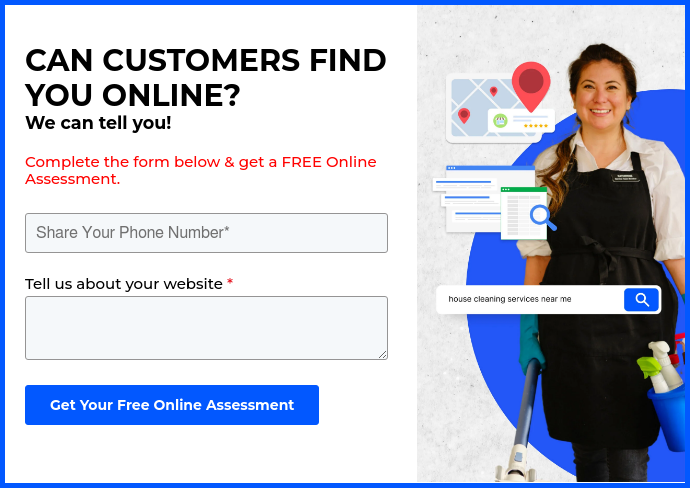How To Keep Track of Small Business Expenses
As your business expands, so do your expenses. Uncover methods to assist you in effectively managing your small business expenses.

Small business owners have a lot on their plates. Managing finances can seem overwhelming. Much of your success depends on making the right financial decisions for your business, and disorganized finances can lead to disaster if you’re unaware of your current situation.
Learning how to keep track of small business expenses is an essential part of financial management. You should know how to keep records, perform primary bookkeeping duties, and create monthly budgets.
Read below to learn about some of the expenses you can expect as a small business owner, as well as how to keep track of them and best manage your finances.
Jump to:
-
What Kind of Expenses Can You Expect as a Small Business Owner?
-
8 Tips for Better Expense Management
-
1. Set Up a Process for Saving Receipts
-
2. Open Up a Business Credit Card
-
3. Establish a Monthly Budget
-
4. Be Strategic With Tax Deductions
-
5. Analyze Your Spending Habits to Identify Cost Savings
-
6. Separate Monthly Expenses Into Expense Categories
-
7. Invest in Accounting Software
-
8. Define What Accounting Method You Will Use
-
Make Better Financial Decisions for Your Business With Proper Expense Tracking

What Kind of Expenses Can You Expect as a Small Business Owner?
The number one reason for business failure is because the business ran out of money. - CBI Insights
Your business finances are affected by many factors. But your expenses are one of the most important. You must be aware of how much money your business is spending.
Below are some of the significant expenses you can expect as a small business owner. If you’re new to business bookkeeping or expense tracking, you may want to add relevant expenses that come to mind as you go through this list to a spreadsheet. Smartsheet offers a collection of free templates you can download to get started.
Click the image above to check out Smartsheet’s free templates.
Office Supplies
Office supplies include the supplies you need to complete administrative duties. Office supplies could include paper, ink cartridges, or pens and pencils. Most office supplies are deducted from the expense account when the business uses them.
Businesses may also have office expenses, a more general category of products and services a business uses to keep its office running. Office expenses might include cleaning and maintenance services or software.
Employee Costs
On average, an employee will cost 1.25 to 1.4 times their base salary. For example, paying an employee $35,000 per year may cost between $43,750 and $49,000. This number typically includes:
- The employee’s base salary
- Benefits
- Payroll taxes
However, your business expenses may also include workers’ compensation insurance, recruiting expenses, and overhead costs. You should be aware of employee requirements in your area. And you should be able to estimate how much a single employee will cost before you hire them.
 Source: Patriot Software
Source: Patriot Software
Business Travel
Travel expenses will include any costs associated with traveling away from your central place of business. Your business’s location is your “tax home,” which typically consists of the entire city. Thus, you must travel outside your tax home for business purposes to deduct the expenses from your taxes.
Business travel expenses may include transportation, use of your vehicle, lodging, meals, baggage fees, laundry services, and other necessary costs.
Operating Expenses
Your operating expenses are any business purchases — except production-related expenses — necessary to keep your business running. Operating expenses may include:
- Rent and utilities
- Property taxes
- Some employee costs
- Sales and marketing expenses
Operating costs make up a considerable portion of small business expenses, which contributes to a company’s financial health.
8 Tips for Better Expense Management
You may be a little overwhelmed with how much financial management is required to run a business. But you can organize your finances and set up processes to make it easier. Read the tips below for how to keep track of small business expenses.
1. Set Up a Process for Saving Receipts
Saving receipts is an essential part of tracking expenses. You may have paper and digital receipts, which provide solid records at tax time. The IRS requires small businesses to keep paper receipts for at least three years. It can be confusing to have them disorganized when you’re trying to file tax returns or do your regular bookkeeping.
You should store paper receipts safely to avoid fading ink or tearing. You may use an envelope, file folders, or a binder. Some methods allow you to organize them based on months or expense categories. It just depends on your organizational preference. You may also want to digitize your paper receipts to decrease the chances of damaging them.
You should store digital receipts for easy access. For example, some accounting software will allow users to upload images or scans of their receipts to keep in the cloud. You may also be able to store email receipts or screenshots of other digital receipts.
One last consideration is making notes to specify details about the purchase. For example, if you have a meal with a client, write down the client's name and the meeting's purpose. It's necessary to keep business costs separate from personal purchases.
2. Open Up a Business Credit Card
Approximately 23% of businesses borrow money at least once per quarter. Credit cards can offer access to funding and open up cash flow. But it can also help keep your financial records organized.
You should have separate banking accounts for business and personal use. This separation will make it easier to keep track of receipts, and you will also have access to separate bank statements that can support your accounting records.
 Source: RKL
Source: RKL
Credit cards go above and beyond a basic checking and savings account. You may get approved for a card that offers rewards or cash back. Look for a card that will meet your needs. For example, if you travel a lot for work, you may want a card that offers travel rewards or airline miles.
3. Establish a Monthly Budget
A monthly budget is one of the best ways to make informed decisions about your future finances. It requires you to look at your past expenses and business income to plan how much you can spend now.
Business budgets can help you prepare for growth. You are likely to use your funds more effectively, especially when you’re excited about getting your business up and running. You can also plan to pay off debt or work in investment opportunities.
When planning your budget, you first need to estimate your revenue. Then you can subtract your fixed expenses, such as rent, payroll, etc., and then determine your variable expenses, such as owner salary, marketing costs, etc. You may be able to adjust your variable expenses based on what revenue you are expecting for the month.
You can use your leftover funds to set up an emergency fund, save for low-revenue months, or invest in capital expenses and growth. Your budget will make it easier to track expenses and get an overall idea of where your money is going.
4. Be Strategic With Tax Deductions
Every time you account for expenses, it reduces how much you need to pay in taxes. Therefore, the more you spend, the less you pay. This doesn’t mean you should spend all your money on anything you want for your business. But it does mean you should have a strategy for reducing your taxes.
You may be able to reduce your taxes by accounting for startup costs, home business expenses, retirement contributions, and more. For example, if you have an office space at home, you can calculate rent and utilities based on your at-home business activity and deduct it as an expense.
In addition, donating to charity could have multiple benefits. First, it can reduce your tax burden. But it can also help you connect with customers and promote a good cause.
Finally, you should work with a professional accountant or tax expert to ensure you get the best deductions for your business.
5. Analyze Your Spending Habits to Identify Cost Savings
If you can reduce your expenses, it can save money and make it easier to track your spending. You may be able to negotiate bills or cut out unnecessary daily expenses to improve your business’s cash flow.
One of the best ways to start looking for cost savings is your recurring expenses. You may pay for subscriptions, services, or vendors that aren’t necessary to your business operations. If you can cut any of these out, it’s one less expense to track, and you’ll save money each month.
Another practice you should adopt is reevaluating your insurance policies each year. Insurance rates fluctuate based on a lot of different factors. You should have a professional figure out if you’re still getting the best rates.
Finally, you should take advantage of free resources as often as possible. For example, try building an organic social media marketing strategy to engage with your audience instead of relying too heavily on buying ads.
6. Separate Monthly Expenses Into Expense Categories
Some common expense categories for small businesses include:
- Advertising
- Insurance
- Office expenses and supplies
- Postage and shipping
- Rent and utilities
- Employee salary and benefits
- Business travel
You can set up your expense categories based on your business. If you find that you spend a lot in one category, you may want to keep it separate. On the other hand, companies with fewer expenses in that category may combine it with another.
In some cases, you can also automate your expenses to have your accounting software enter them into a specific category. For example, you may match vendor invoices to the correct category instead of entering the transaction manually.
That said, you should have a schedule to review your business expenses regularly. Software can be convenient, but double-checking that costs are in the correct category can save you hassle when it comes time to file taxes.
7. Invest in Accounting Software
About 64% of small businesses in the United States use accounting software. On top of that, 20% of the companies that don’t use accounting software will likely struggle in their first year.
Accounting software holds many benefits for busy business owners. It can connect with your bank accounts to automate transactions, provide mobile accounting, and provide reports to assess your financial situation.
Some of the best accounting software include:
- Certify. There is an expensive set-up fee to use Certify but it provides all of the features that small business owners need and creates connections to receipts in case of audits.
- Expensify. is very easy to use. It focuses mainly on storing receipts and categorizing expenses but has many other valuable features.
- Freshbooks. You can track all of your expenses with Freshbooks, and it provides other features, such as business invoicing.
- Quickbooks. Quickbooks has many accounting features but may be slightly more expensive. You can track expenses and create reports such as your income statement.
Any of the software listed above can help manage your finances. It can save business owners and employees time to focus on other projects, and it keeps all of your expenses in one place.
8. Define What Accounting Method You Will Use
There are two main accounting methods: cash basis accounting and accrual basis accounting.
Cash basis accounting requires you to record income when it is received and expenses when you pay them. For example, you might receive an invoice from a vendor but pay it two weeks later. If you use cash basis accounting, you will record the payment on the day you paid the invoice.
Accrual basis accounting varies in that you record income when you earn it and expenses when you incur them. Using the example above, if you use accrual basis accounting, you will record the payment on the day you receive the invoice.
You can choose either method if you’ve made less than $25 million in revenue in the last three years. However, you must use accrual basis accounting if you've exceeded these limits.
Most small businesses choose to use cash basis accounting. Record-keeping is typically easier with cash basis accounting because receipts and bank statements will more easily align with your financial transactions.
Make Better Financial Decisions for Your Business With Proper Expense Tracking
Tracking your expenses is crucial to keeping your finances in order. Small business owners are responsible for making financial decisions to keep their businesses growing. Organizing your finances is the best way to avoid setbacks.
Now that you know how to track expenses, you need to learn how to collect revenue that you can use to pay your bills. GoSite has created its Invoices platform to help small business owners create and send invoices, send payment reminders, and collect payments.
%20(1)%20(1).png?width=340&name=Group%2012%20(2)%20(1)%20(1).png)




